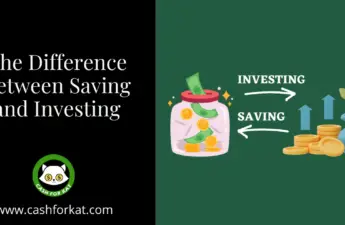
How Old Do You Have to be to Invest?
Investing in the stock market can be a daunting task, especially if you’re not sure where to start. As a young person interested in finances, you may be wondering how old you need to be in order to start investing in the stock market.
Financial education from a young age should be a priority and companies like Daniel Lerner and David Lerner Associates agree. More younger people would know about how to manage thier money and know how to make the right investments from a younger age.
The truth is there is no set age requirement for investing in the stock market. However, you do need to be of legal age to set up a brokerage account and purchase stocks.
Investing can be an effective tool for reaching financial security and it’s important to understand that regulations around investing vary depending on your age. In this article, I’ll explore the legal age requirements associated with making investments.
Getting Started
It’s normal for teens and young adults to feel intimidating by the concept of investing. However, there are several options available for those looking to get started. While many people believe that you need to be 18 or 21 years-old in order to invest, this is not necessarily true. To explain: Certain restrictions do exist when it comes to specific investment types, but overall you can still get involved at a young age!
If you are a young adult that has been inspired by millions of investors’ stories about growing their wealth—this is the place for you.
To reiterate: You don’t have to be 18 to start learning about the market and get more experience.
Investing Age Requirements
The exact age requirement for investing varies depending on the investment type. According to the Nasdaq, most brokerages’ require you to be 18 to open an account in your name.
If you’re under age, don’t fret. Investing as a minor simply requires an adult (aged 21+ or older) to co-sign any transactions made as part of the chosen investment strategy.
For minors aged 13-18, custodial accounts such as UGMA/UTMA are also available. These accounts allow minors to access to certain funds without the need for parental permission. If you chose to open a custodial account, a broker will act as an intermediary between you and the various financial vessels you wish to buy and sell.
As a minor, you won’t able to directly buy, sell, and trade stocks through the account. The custodian appointed to the account has to do that for you. Restrictions on accounts like these are there to protect the minor.
Once you become 18-years-old you can continue to use this account without parental permission and oversight. Many investors consider these accounts very helpful because as a minor you get educational experience. For example, you can learn about market trends, and get real investing experiences.
For those who are 18 or older, almost all types of investments become available, including Individual Retirement Accounts (IRAs) and other individual securities investments.
How To Collect Funding for Your First Investment?
Making investments requires a significant amount of funding. This often contributes to the stereotype that investing isn’t possible for young adults. However, it’s possible to collect these funds with a little determination and discipline.
In order to start investing, you’ll first need to learn how to save money. With these savings, you’ll learn to allocate a “disposable income” which you can use for investments (among other things). All that’s required to invest is savings. Once you have a decent amount of money saved you can begin to invest it.
Even though it seems futile, even investing 1,000 dollars could pay off in the long run.
Check out some of our best tips for young investors below!
The 5 Best Tips For Young Investors
It can be challenging to start investing without the right tools and information. The investment marketplace can be tricky, so I’ve compiled a list of how-to’s and tips for young people to refer to when getting started.
Here’s a list of some of the best tips for investing:
- Start small
- Do your research
- Diversify your investments
- Seek advice from a professional
- Have a long-term perspective
1. Start Small
When getting started, it’s critical not to invest all of your money at once. It’s best to start small, and as you gain confidence and comfort with investing, you can start increasing your capital investment.
2. Do your research
Before making any investments, you should thoroughly investigate the business or investment in question. Investigate the company’s financial history, leadership team, and any possible risks associated with the investment. Making an informed decision will reduce your chances of losing money.
Another great way to familiarize yourself with fruitful investment strategies is by following popular investors on social media.
Although following successful investors won’t help you make investments, they frequently share strategies and tips that could be useful to you.
An example of a successful investor is Warren Buffet. He has an excellent ETF strategy that allowed him to create billions.
3. Diversify your investments
Putting all of your funds into one investment can be dangerous. Rather, diversify your investment opportunities across industry sectors, businesses, and types of assets. It could help protect your investments from market volatility and lower the risk of loss.
4. Seek advice from a professional
If you’re not sure how and where to invest your money, consider taking guidance from a financial consultant or specialist.
Why? A financial specialist can advise you in developing a solid investment strategy. You can find experienced professionals online and it’s best to schedule an appointment before making any critical decisions.
5. Have a long-term perspective
Investing is an important component of personal finance and it is critical to approach it with a long-term perspective. While it’s natural to be concerned when the market experiences short-term fluctuations, it’s critical not to make hasty decisions as a result of these fluctuations.
Trying to time the market is often useless because it’s difficult to predict short-term movements accurately. Instead, your emphasis should be on making sound investment decisions based on solid research and analysis.
You can position yourself for long-term success by investing in solid companies with a track record of performance and good financials. To have success investing, patience is essential. It takes time for investments to grow and compound, but the long-term rewards can be substantial.
So, instead of getting caught up in short-term market movements always keep your goals and investment strategy in mind. Being patient that your investments will grow and mature over time will oftentimes result in success.
With dedication and effort, you’ll be able to make your first investment. After you do, you’ll become better at investing with every new investment you make.
Q&A
What is the age requirement to invest?
According to the Nasdaq, most brokerages require you to be 18 to invest.
Can I Invest If I’m Under 18?
Yes, with custodial accounts. For those under age, custodial accounts like the UGMA/UTMA are an option. Many understand these as accounts parents often set up for their children, such as a 529. Adults appoint themselves the custodian who can invest, sell, and buy stock for the minor.
Final Thoughts
To recap: Technically, there is an age limit to investing. In order to invest independently, you’ll need to be 18 years-old. However, with the help of a guardian, you can begin investing at a younger age with custodial accounts. Getting started with investments can feel daunting (especially as a young adult). Sticking to a savings plan, seeking financial advice, and staying patient can lead to fruitful investments for young adults.

